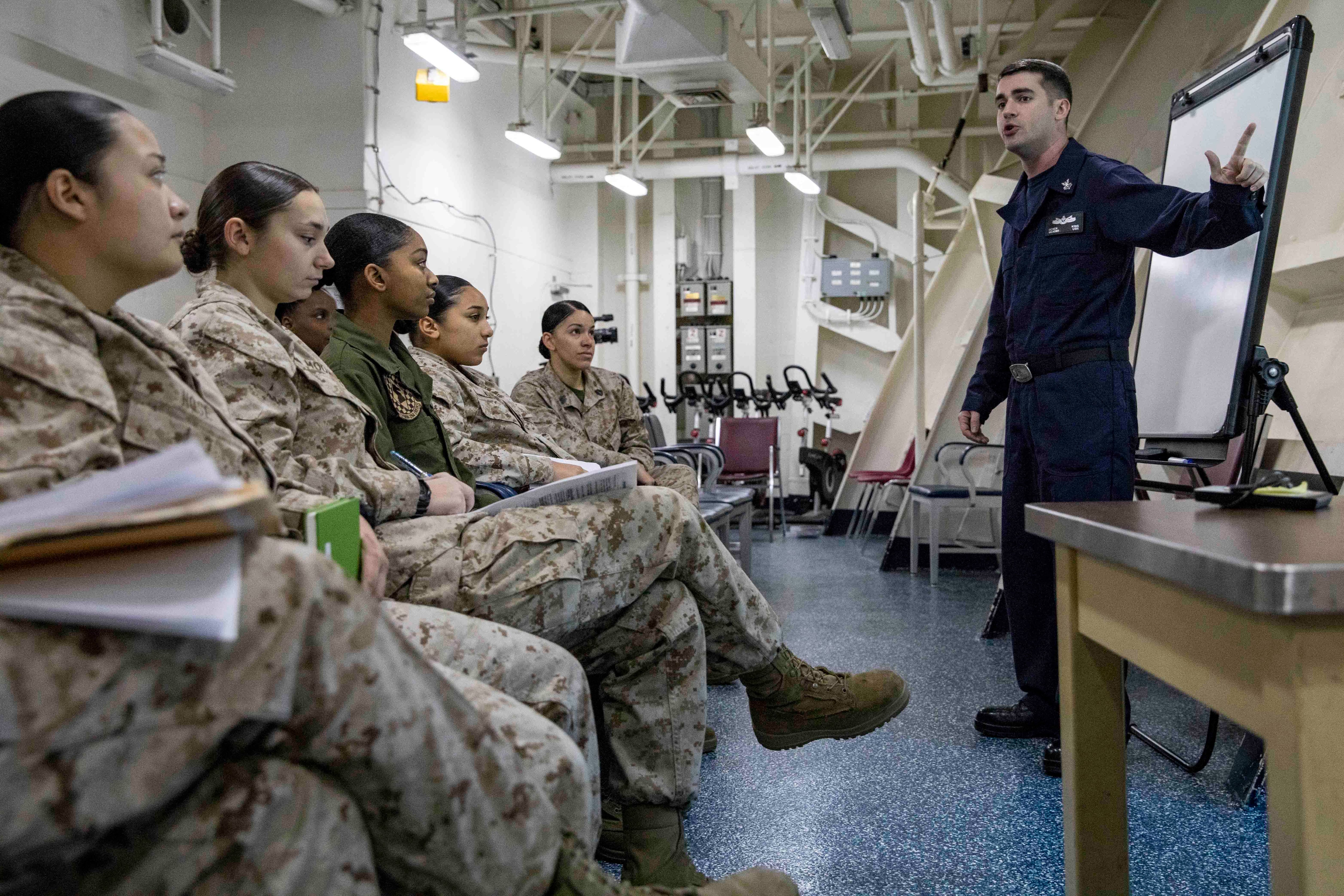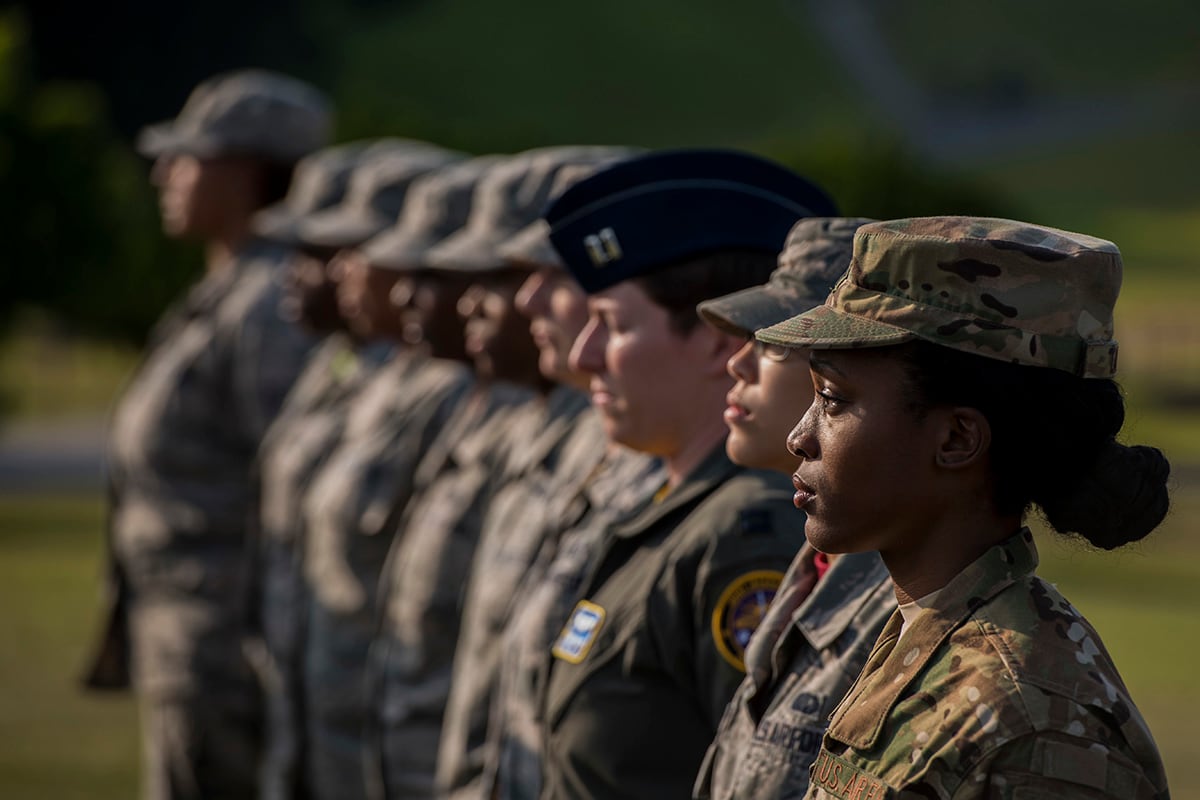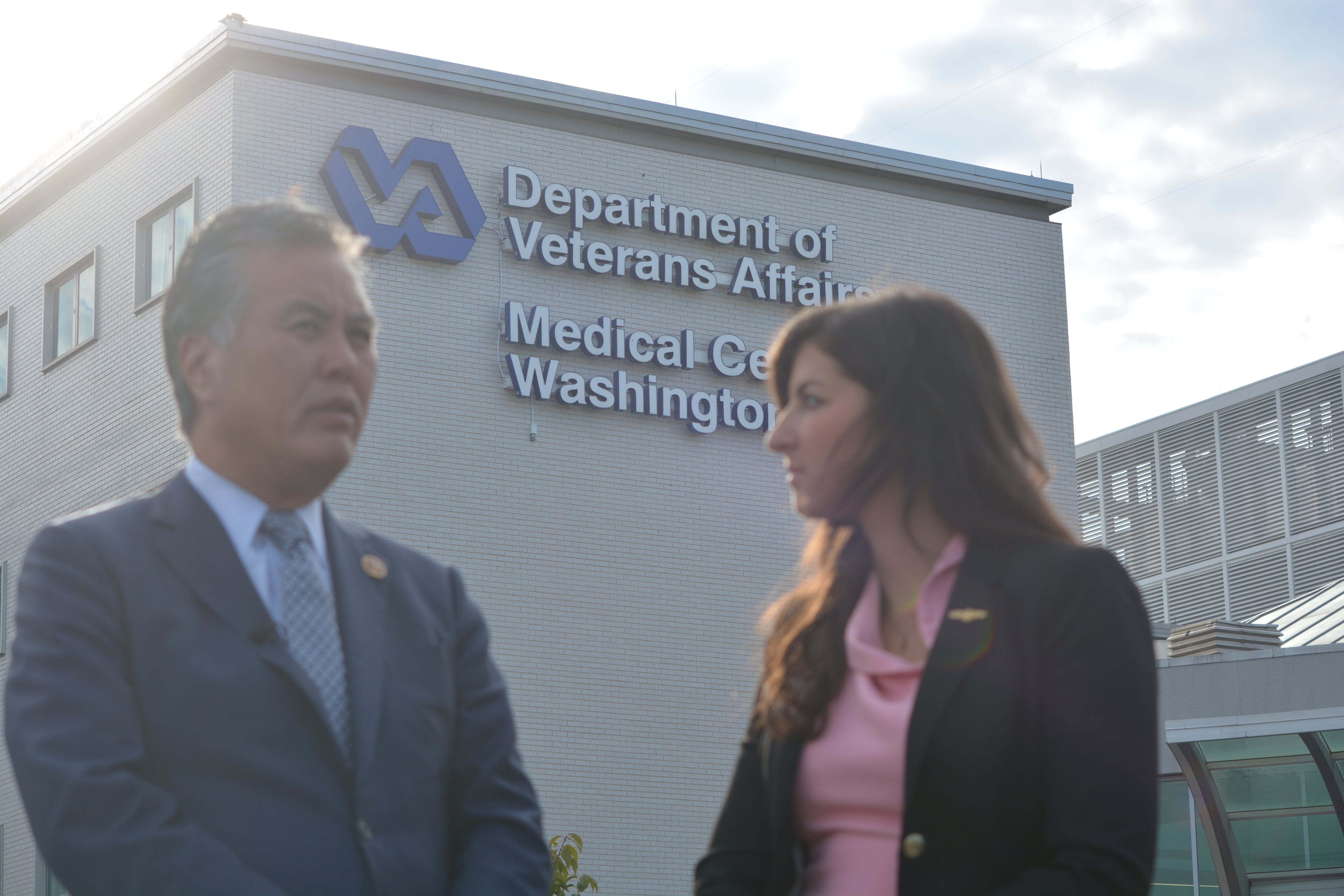The chairman of the House Veterans’ Affairs Committee is demanding a nationwide review of department sexual harassment policies after one of his committee staffers was assaulted at a VA hospital last week by a fellow veteran.
Andrea Goldstein, a reserve Navy intelligence officer and the lead staffer on the committee’s Women Veterans Task Force, said she was groped and body checked by an unknown man while waiting in the front atrium of the Washington DC VA Medical Center last Friday. The man also propositioned her as he made the unwanted advances.
“Several employees witnessed the assault and said nothing,” Goldstein said during a press conference outside the hospital Thursday morning. “I reported the incident to multiple employees — a worker at the information desk, the patient advocate, and finally my doctor — before police were called.”
Committee Chairman Rep. Mark Takano, D-Calif., said the incident sadly is part of a pattern of abuse and harassment at VA medical facilities that too often discourages women veterans from seeking the medical care they have earned.
RELATED

“This abuse doesn't happen everywhere and it doesn't happen every time,” he said. “But it happens too much. Once again, I'm asking VA to ensure that all VA staff have mandatory bystander intervention training to identify and diffuse incidents of harassment and assault, support veterans who report an incident and cooperate with the proper law enforcement.
“No veteran, family member caregiver, VA employee or contractor should be the victim of sexual assault or harassment at a VA facility ever.”
In a statement, VA Press Secretary Christina Mandreucci said the department has turned an investigation into the assault over to the department’s inspector general and local law enforcement.
“These are serious allegations and VA is treating them as such,” she said. “VA will not tolerate this alleged behavior, and we are committed to delivering justice.”
Goldstein, who in recent months has helped organize several congressional roundtables on harassment and misogyny at VA facilities, said she uses VA almost exclusively for her medical care, and has visited the Washington, D.C. facility — just a few miles north of Capitol Hill — multiple times in the past. She said she was satisfied with staff response to the incident after she filed her complaint, but remains upset hat there was no immediate reaction to the assault, which happened in an open area in view of multiple patients and staff.
Goldstein also said she was carrying with her a copy of draft legislation to strengthen VA harassment rules when she was assaulted.
“At least one in four women veterans experienced sexual or gender based harassment at VA facilities,” she said. “We are not faceless staff. We are veterans. We are your neighbor. We are your coworker. We are partners, friends and parents.”
Joy Ilem, national legislative director for Disabled American Veterans, said numerous women veterans have complained about similar incidents at VA facilities in the past. She worries that many others may not be reporting their negative experiences, and simply avoiding the VA system instead.
RELATED

“Women feel this is a barrier to care, and not accessing that care. That is the real importance to us,” she said. “We want to make sure everyone who needs care can feel safe, come to VA and get the very specialized services that VA can provide.”
Takano said VA has to do more to address those problems.
“We need better metrics, we need a better reporting system,” he said. “We need an esprit de corps and an attitude among the VA staffers to be able to make that reporting better … We need to have far more updated training, and it can’t just be one mandated training a year. It has to be something continuously.
“Changing a mindset and the culture, it’s about rebuilding muscle memory so that employees are able to respond and produce a much different culture that will welcome our women veterans.”
About 10 percent of veterans in America today are women. The average age of women seeking care in the VA system is more than a decade younger than their male counterparts.
According to past VA surveys, about one in five women using VA health services said they experienced sexual assault or trauma during their military service.
All VA health facilities are required to display anti-harassment posters and messages as part of the department’s End Harassment of Veterans campaign. The effort has also included intervention training for staffers
Leo covers Congress, Veterans Affairs and the White House for Military Times. He has covered Washington, D.C. since 2004, focusing on military personnel and veterans policies. His work has earned numerous honors, including a 2009 Polk award, a 2010 National Headliner Award, the IAVA Leadership in Journalism award and the VFW News Media award.




